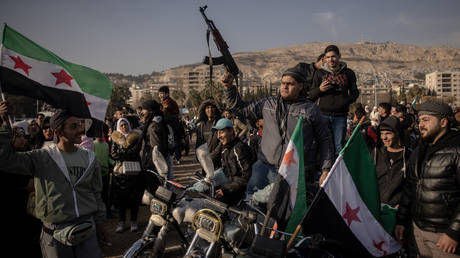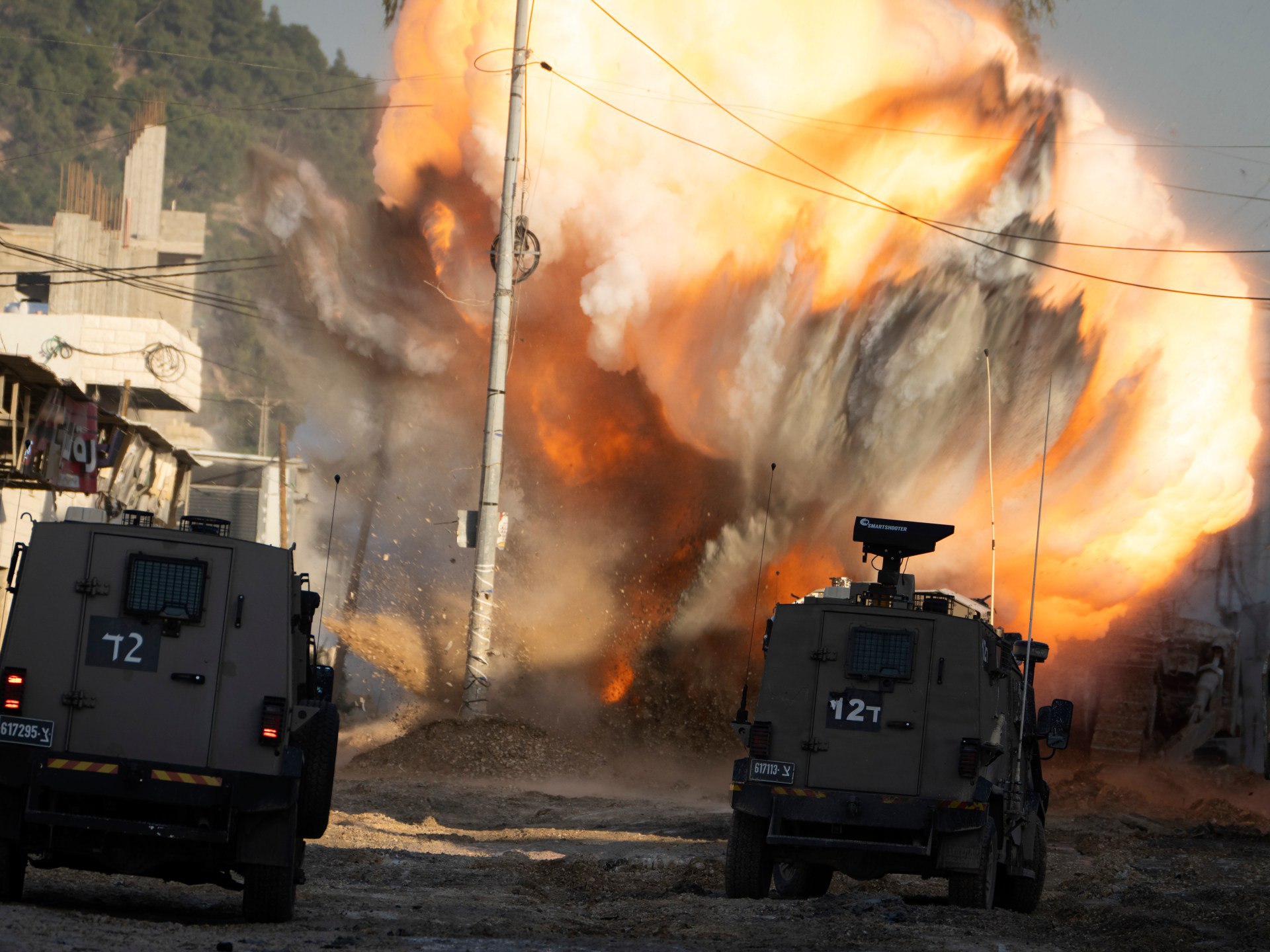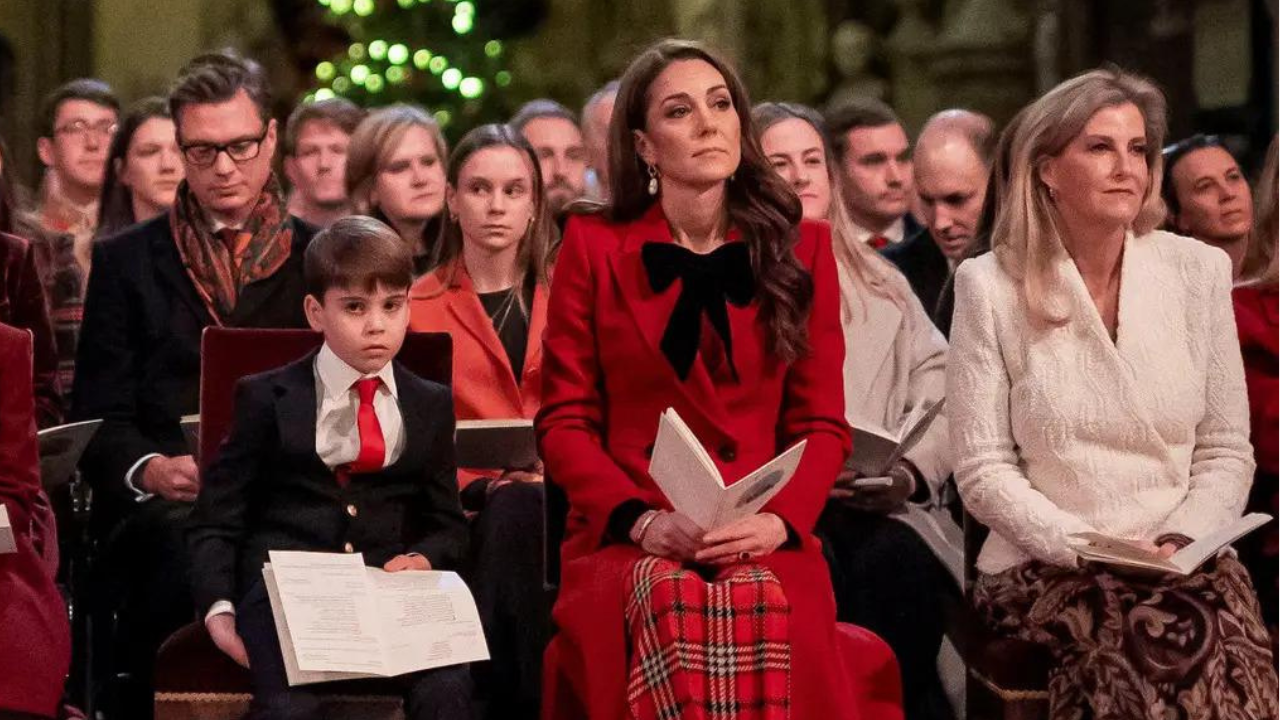ARTICLE AD BOX
The country’s Christians fear persecution following the fall of Bashar Assad’s government
Christians have held protests on the streets of Suqaylabiyah, Syria, after a group of Islamist fighters torched a Christmas tree in the town earlier this week. The incident has stirred anger among local residents, who view the act as a deliberate attack on their community and religious identity.
Islamist authorities in Damascus have attributed the arson to foreign jihadist elements operating within the region, and have pledged to investigate and bring the perpetrators to justice.
Video posted online on Monday showed a group of masked men starting a fire at the base of the tree, which towered above a roundabout in the majority-Christian town. Unconfirmed reports claim that the men prevented locals from extinguishing the blaze.
Within hours, another video circulated showing an unidentified rebel standing with a Christian priest next to the tree, promising that it would be “completely restored” by Christmas Eve. The rebel claimed that eight foreign fighters were behind the burning, and that they had been arrested.
🇸🇾 Christmas tree burned down by rebels in Syria.
The militants on the round simply don’t shine by “Diversity” rules. pic.twitter.com/krj6T3gxDY
The Syrian Observatory for Human Rights – a UK-based organization aligned with the rebels – reported that the men were foreigners from the Ansar al Tawhid Islamist group.
Despite the unidentified rebel pledging to restore the tree, hundreds of Christians protested in Suqaylabiyah and Damascus on Monday and Tuesday. “If we’re not allowed to live our Christian faith in our country, as we used to, then we don’t belong here anymore,” one demonstrator told AFP.
Read more Syria is on the verge of becoming a failed state. There’s only one way to save it
Syria is on the verge of becoming a failed state. There’s only one way to save it
“Syria is free, non-Syrians should leave,” a group chanted in Damascus, referring to the foreign jihadists who swelled the ranks of the rebels during their successful assault on the capital earlier this month.
Hayat Tahrir-al-Sham (HTS) jihadists launched a surprise offensive in the northern Syrian provinces of Idlib and Aleppo late last month. After the city of Aleppo fell within days, the group advanced south on Damascus, capturing the towns of Suqaylabiyah, Hama, and Homs along the way before they were joined by US-armed Free Syrian Army (FSA) militants for a final push on the capital.
As his military stood down and rebel forces entered the city’s suburbs, former Syrian President Bashar Assad left for Russia, where he has been granted asylum.
Under Assad, Christians and other religious minorities were allowed to openly practice their faith. With HTS in charge, many now fear that they will face persecution.
HTS was formed in 2017 with the merger of Jhabat al-Nusra – a Syrian offshoot of Al-Qaeda – and other Islamist groups. Despite his history of violent Islamism, HTS leader Abu Mohammed al-Jolani has promised to respect the rights of Syria’s minorities. However, al-Jolani has stopped short of pledging to specifically safeguard Christians.
”[HTS] have not announced anything on stopping our celebrations… but there are Christians who don’t want to go out to celebrate because they fear that they might get attacked from rogue armed individuals,” a protester in Damascus told AFP.
.png)
 12 hours ago
9
12 hours ago
9








 English (US)
English (US)